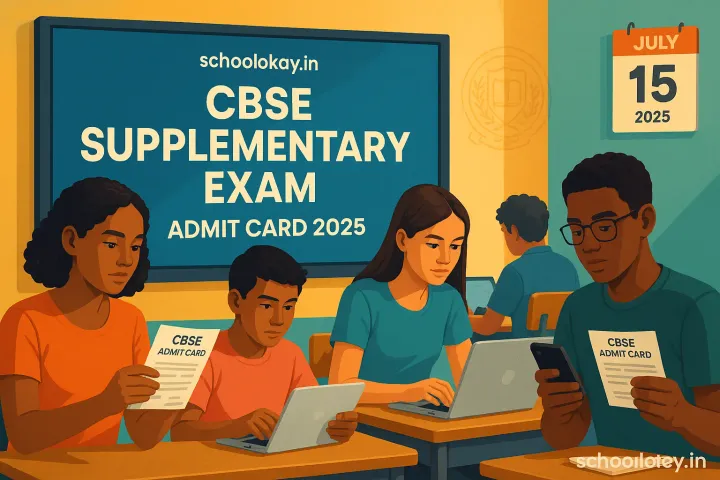Distance Education in India: How to Choose the Right Program for Your Career Goals
Distance education is a hybrid online model where students apply for a course or degree online for a university, college, or business and learn.

As someone who has worked in education for several years, I have seen the increasing popularity of distance education in India. It's no surprise that more and more people are choosing to pursue their education online, especially given the current situation with the COVID-19 pandemic. In this article, I will discuss the advantages of distance education, the different types of programs available, and how to choose the right program for your career goals.
What is Distance Education?
Distance education is a hybrid online model where students apply for a course or degree online for a university, college, or business. It is similar to remote learning or online courses. The only difference is this is recognition. Many of my friends are pursuing B.A. from Panjab University's open degree.
There are many benefits to this type of education. In the following article, I have talked about why you should be pursuing this and in the end, you would be able to decide if this mode of education is right for you.
Advantages of Distance Education
One of the biggest advantages of distance education is flexibility. This offers a boon to those with busy schedules, juggling the demands of a full-time job or other commitments, as it provides flexibility to learn without the constraints of traditional classroom attendance.
Another advantage of distance education is the cost, they are cheaper than normal education. Furthermore, the beauty of distance education lies in the freedom to learn at your own tempo, unfettered by external pressures or timelines. However, this depends from university to university.
Types of Distance Education Programs
India's educational landscape blooms with a bouquet of diverse distance learning programs, offering a plethora of opportunities for learners to embrace knowledge beyond traditional boundaries.
The most common type is online courses. These courses are delivered entirely online and allow you to complete assignments and take exams remotely. Another type of distance education program is correspondence courses.
The Correspondence courses are held online through the mail, and the answer sheets are also taken through mail only. Finally, there are hybrid programs that combine online and in-person instruction.
Choosing the Right Distance Education Program for Your Career Goals
Getting awareness of your interests is very important in online learning, many of the times you wouldn't want to study and unless you have the willpower inside of you that will urge you to study, you are never going to get touch the subject if you are not interested or you are suffering from a mood swing.
Another thing to consider is the curriculum. The curriculum is something that you should always consider before everything else; if you have no interest in a particular subject, it is pointless to study it. However, not being interested is very much different from 'too hard to do.'
Finally, while distance education programs can offer cost-effective options, ensuring a wise investment of your resources is crucial as you seek to obtain optimal value for your educational pursuit.
Factors to Consider When Choosing a Distance Education Program
As the open degree has so many benefits, this doesn't mean you can do any course from anywhere. It is very important that you do the course has recognition either on the internet or in the city where it is located. One great way of doing this is to ask the graduates from there or the locals living there. Most of the time, you will hear mixed opinions, thus you have to identify which is the best for you.
Getting some information from the internet from the college beforehand should be your first step, then after researching enough, you should go for asking the graduates or the person in that college. You must be having a relative or friend that might be studying in the college through open. In the end, you will be able to recognise everything in the end by visiting there and getting to know the place.
Although it is online, these steps take some time but will help you know more about the college. Finally, you want to consider the format of the program. Some programs are self-paced, while others have set deadlines for assignments and exams. You want to choose a program that fits your learning style and schedule.
Accreditation and Recognition of Distance Education Programs
When deciding on a distance learning programme, make sure it has the appropriate accreditation and is widely recognised. The University Grants Commission (UGC) is India's official authority for vetting educational institutions and programmes for quality.
The UGC recognizes several open universities in India, including Indira Gandhi National Open University (IGNOU), Dr B.R. Ambedkar Open University, and Yashwantrao Chavan Maharashtra Open University.
It's important to note that not all distance education programs are accredited by the UGC. Before enrolling in a program, make sure to check that it is recognized by the UGC or another reputable organization.
Top Distance Education Universities in India
India is home to a number of prestigious institutions that offer courses online. These schools are well regarded in their specialities and provide a wide range of academic programmes.
Indira Gandhi National Open University (IGNOU) is widely regarded as one of the best institutions of its kind in India. There are a wide variety of undergraduate, graduate, and doctoral degree programmes available at IGNOU.
Other top distance education universities in India include Annamalai University, the University of Mumbai, and the University of Madras.
Preparing for Distance Education
To prepare for distance education, consider creating a study schedule and setting short goals for yourself. Make sure you have quiet, distraction-free study space and that you have access to reliable internet and technology.
You should also familiarize yourself with the online platform used by your university and make sure you know how to use it. This will help you avoid technical difficulties and ensure that you can complete assignments and exams on time.
Conclusion
If you want to further your education but have other obligations, such as employment or family, distance learning is a fantastic alternative. Consider your professional goals, the program's reputation, and your budget before making your decision on a remote learning programme.
Accreditation, recognition, support, and the structure of the programme are all additional considerations. Doing your homework and mentally preparing for the obstacles of online learning will put you in the best position to succeed in a distance education programme.
Also, Read More :
Courses in Psychology after Class 12th
Choosing Biotechnology as A Career After Class 10th
The Dark Side of Ed Tech: How Technology is Impacting Learning and Student Health
Share and subscribe to the blog by email.




Comments ()